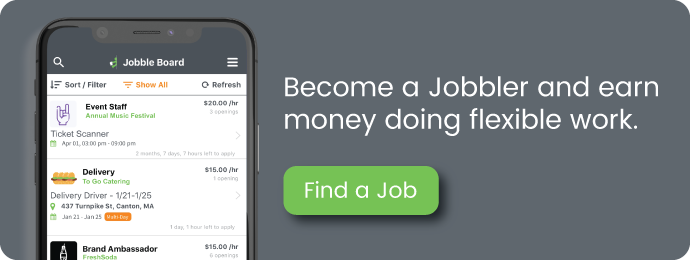- Jobble
- June 17, 2020
There are several types of job searches, from the casual browse to the desperate “pray and spray” method. When you’re looking for income, it may be tempting to keep your options wide open. This works for some job seekers but it might not be the best path for you. Take your time in your job application process to really assess if you actually want the job before you apply. It’s important that you find a balance between not working and working the right jobs.
By being selective, you can spend more time on the applications that matter. This helps you avoid being considered for a job that might be a bad fit. Here are questions you should ask yourself when debating if you should submit an application.
Am I a good fit for this job?
First, read through the job post carefully. What a company posts in their job description is like what you put on your resume: it’s the information they want you to know to make them appealing to you. Review the job description, pay rate, location and company information thoroughly to get a full understanding of the opportunity at your hands. This will help you make an informed decision about applying or not.
You will have to tell the hiring manager why you are a good fit for the position either through a job application or an interview, but make sure you really believe that you are. While it helps to have experience similar to what they need, relatable experience can help as well. You should only submit a job application if you feel fairly confident that you could do the job well or be quickly trained to excel.
Outside of pay, are there additional benefits to working?
Not every gig you work has to be one that moves forward your overall career plans. However, asking yourself if a job fits into your goals could help determine if it’s an opportunity you should seize.
When reviewing a job post, be mindful of additional opportunities the job may present. This could be a foot-in-the-door for a company you’d like to work for. There could be networking opportunities if it’s a job in an industry you are growing your career in. Even if the job isn’t part of your career plan, there may be a chance to find long-term work through that role, which could help your financial goals. Sometimes these extra perks could be more valuable than the job itself.
Are there any barriers that could prevent me from working?
Ideally, a hiring company is thorough in their job post, especially if there are any special requirements you would need to work. Keep an eye out for special uniform specifications (like steel-toe boots or black shoes). Some jobs may ask about certifications like TIPS, ServSafe or First Aid which could be preferred or required to work.
Don’t forget to look into traveling to and from the job site for the shifts you would work. Transportation can be a barrier preventing job seekers from matching with open positions. If you use public transportation, make sure the schedule coincides with the hours you’d work. Additionally, the cost of travel can influence how much you would need to earn in order for it to be a worthwhile commute.
If acquiring necessary materials or transportation is too costly and the rate is not sufficient, applying might not be the right choice.
Do I actually want this job?
The answer to this question should be simple, but it is common for job seekers to be very open-minded when sending out job applications.
“Many job seekers apply for jobs that they don’t really want,” says Alison Doyle of TheBalanceCareers. “Ask yourself if you’d be excited to receive a call for an interview. In most cases, you will be better off devoting your resources to searching for a job that’s a better fit.”
If a hiring manager contacts you after seeing your application and you know you aren’t actually interested, you could be wasting their time as well as your own.
We’ve outlined a lot of things that may make you decide to not apply to a job. So, what’s the cheat sheet for knowing when to submit an application? You should apply if:
-
- You know you’d be a good fit for the job
-
- The job opportunity has immediate or long-term benefits
-
- You can feasibly acquire any materials or transportation necessary
-
- You feel excited for the opportunity to work
Not every job will meet all of those standards, but if a job doesn’t meet any, you’re better off searching for a better fit. Be selective and thoughtful and you can find yourself sending out the applications for the right opportunities.











